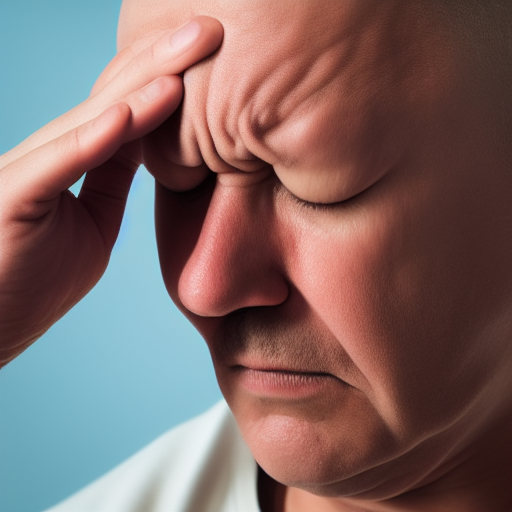
FAQ About Erectile Dysfunction
Do you feel like you’re not quite yourself lately?
Are you having trouble getting or maintaining an erection?
If so, you may be suffering from erectile dysfunction.
This is a common problem among men 60 and older, but it doesn’t have to be permanent.
The following are some facts about ED that will help you with understanding and overcoming erectile dysfunction.
1. What are the most common causes of erectile dysfunction?
Answer: The most common causes of erectile dysfunction are physical causes, such as heart disease, stroke, high blood pressure, diabetes, and obesity.
Here are the five most common causes of ED.
Psychological Issues
One of the most common causes of ED is psychological in nature.
Anxiety, depression, and stress can all lead to difficulty achieving or maintaining an erection.
In some cases, these psychological issues may be the result of other underlying health conditions.
If you’re experiencing symptoms of anxiety, depression, or stress, it’s important to seek professional help.
Hormonal Imbalance
An imbalance in hormone levels can also lead to ED.
Testosterone is the hormone most closely associated with sexual function, so a decrease in testosterone can definitely have an impact on your ability to get and maintain an erection.
There are several potential causes of a hormonal imbalance, so if you suspect this might be an issue for you, it’s important to see your doctor for testing.
Heart Disease
Believe it or not, heart disease is one of the most common causes of ED.
That’s because the same factors that contribute to heart disease (high blood pressure, high cholesterol) can also affect blood flow to the penis, making it difficult to achieve or maintain an erection.
If you have any concerns about your heart health, be sure to see your doctor for testing and treatment options.
Diabetes
Diabetes is another condition that can lead to ED by affecting blood flow to the penis.
In fact, men with diabetes are two to three times more likely than men without diabetes to experience ED.
If you have diabetes, it’s important to work with your doctor to keep your blood sugar levels under control and monitor your sexual function closely.
Medications
In some cases, erectile dysfunction may be a side effect of certain medications that you’re taking for other conditions.
For example, beta-blockers (used to treat high blood pressure) and antidepressants (used to treat depression) are both known to cause ED in some men.
If you think your medication might be causing ED, talk to your doctor about alternative treatment options.
2. What are the best treatments for treating erectile dysfunction?
Answer:There are a number of different treatments for treating erectile dysfunction, including lifestyle changes, medications, and surgery.

The first step in treating ED is to identify the underlying cause.
In some cases, ED may be caused by a medical condition, such as diabetes or heart disease.
In other cases, psychological factors may be the cause, such as stress or anxiety.
Once the underlying cause has been identified, treatment can begin.
There are many different treatments for ED, but not all treatments are equally effective.
Some of the most common and effective treatments for ED include:
Oral medications
Oral medications such as sildenafil (Viagra), tadalafil (Cialis), and vardenafil (Levitra) are often the first line of treatment for ED.
These medications work by relaxing blood vessels and increasing blood flow to the penis.
Injections
If oral medications are not effective, injections may be an option.
Injections into the penis can help increase blood flow and produce an erection within minutes.
Vacuum devices
A vacuum device is a plastic tube that is placed over the penis.
The tube is then connected to a pump that creates a vacuum around the penis, which helps to draw blood into the tissue and produce an erection.
Penile implants
Penile implants are a surgical option for men who do not respond to other treatments.
A penile implant is a device that is placed inside the penis to help maintain an erection.
3. What are the side effects of the most common treatments for erectile dysfunction?
Answer: The side effects of these treatments vary, but can include headache, flushing, nasal congestion, upset stomach, diarrhea and vision problems.

The most common treatment for ED is oral medication.
The most common oral medications used to treat ED are phosphodiesterase type 5 inhibitors.
These drugs include sildenafil (Viagra), tadalafil (Cialis), and vardenafil (Levitra).
These drugs work by relaxing the muscles in the penis and increasing blood flow to the area, which helps achieve and maintain an erection.
The most common side effects of these drugs are headache, flushing, upset stomach, and nasal congestion.
In rare cases, these drugs can cause more serious side effects such as sudden vision loss or hearing loss.
If you experience any of these side effects, you should stop taking the medication and seek medical help immediately.
4. How can you prevent erectile dysfunction?
Answer: There are many ways that you can prevent erectile dysfunction. Some of the most common methods include eating a healthy diet, getting regular exercise, and avoiding tobacco products.
Exercise regularly
Exercise improves blood flow throughout your body, including the penis.
It also helps reduce stress and anxiety, two major causes of ED.
Aim for at least 30 minutes of moderate exercise—such as brisk walking—most days of the week.
Eat a healthy diet
A diet that’s good for your heart is also good for your penis.
Eating plenty of fruits and vegetables, whole grains, and lean proteins can help reduce your risk of ED.
In addition, eating foods high in antioxidants—such as watermelon, dark chocolate, and blueberries—may help improve blood flow to the penis and reduce the risk of ED.
Quit smoking
Smoking cigarettes can damage your blood vessels and interfere with blood flow throughout your body—including the penis.
If you smoke, quitting is one of the best things you can do to prevent ED.
5. What is the long-term outlook for men with erectile dysfunction?
Answer: The long-term outlook for men with ED is generally good if the condition is properly treated. Untreated ED can lead to low self-esteem, relationship problems, and depression.
The long-term outlook for men with erectile dysfunction can vary widely, depending on a number of different factors.
On one hand, psychological or emotional factors like stress, anxiety, or depression can make erectile dysfunction much harder to treat.
However, with the right treatment plan and support from a mental health professional, men with erectile dysfunction are often able to manage their symptoms long-term.
In addition, there are also several medical factors that may contribute to erectile dysfunction.
Some of these include heart disease, high blood pressure, and diabetes, all of which can cause erectile dysfunction by interfering with blood flow to the penis.
Luckily, there are many treatment options available for these conditions as well.
Whether through lifestyle changes like diet and exercise or medications such as Viagra or Cialis, most men with erectile dysfunction are able to successfully manage their symptoms over the long term.
Thus overall, while erectile dysfunction poses a significant challenge in the short term, it is generally manageable with the right approach and supports.
With an open mind and careful consideration of various treatment options, most men are able to regain their confidence and enjoy full sexual health well into the future.
6. What are the risks associated with untreated erectile dysfunction?
Answer: Untreated erectile dysfunction can lead to more serious health problems, such as heart disease.
Untreated ED can lead to some serious health complications. Some of the risks associated with untreated erectile dysfunction are:
Cardiovascular Disease
One of the most serious risks associated with erectile dysfunction is cardiovascular disease.
Cardiovascular disease is a general term used to describe conditions that affect the heart and blood vessels.
These conditions include heart attacks, strokes, and atherosclerosis (hardening of the arteries). ED is often an early sign of cardiovascular disease.
This is because the same factors that lead to ED (such as high blood pressure and high cholesterol) can also lead to cardiovascular disease.
If you have ED, it’s important to see your doctor so that you can be evaluated for cardiovascular disease.
Depression
Another risk associated with erectile dysfunction is depression.
Depression is a common side effect of ED, and it can also be a cause of ED.
Depression can worsen ED symptoms and make it more difficult to treat.
If you have ED and you’re feeling depressed, it’s important to see your doctor so that you can be treated for both conditions.
Low Testosterone Levels
Low testosterone levels are another risk factor for erectile dysfunction.
Testosterone is a hormone that plays an important role in sexual function.
Low testosterone levels can cause ED, and ED can also cause low testosterone levels.
If you have low testosterone levels, it’s important to see your doctor so that you can be treated.
7. Are there any natural remedies for treating erectile dysfunction?
Answer: Yes. There are a few natural remedies that have been shown to be effective in treating erectile dysfunction. These include: – Gingko biloba, L-arginine and Horny goat weed.
When it comes to erectile dysfunction, there are a number of natural remedies that have been shown to be effective in helping to treat this condition.
For example, gingko biloba is a popular herbal remedy that has long been used as an aphrodisiac for improving erectile function.
This herb has also been found to increase blood circulation and relax smooth muscles, which can help to improve erections.
Other herbal remedies that may be useful for treating erectile dysfunction include L-arginine, which helps the body produce more nitric oxide, and Horny goat weed, which contains organic compounds that have been shown to have a positive effect on sexual health.
Some of the most common natural treatments are foods and spices that are known to promote sexual health and function.
For example, some studies have linked diets high in certain types of fiber to improved erectile function, as well as enhanced testosterone production.
Additionally, herbs like ginseng and maca have been shown to improve erectile response by regulating hormone levels and stimulating circulation.
Conclusion
Erectile dysfunction is a common problem, affecting up to one in five men.
However, it is often treatable with medication or other treatments.
If you are experiencing erectile dysfunction, it is important to see your doctor so that you can get treatment.
There are also a number of natural remedies that have been shown to be effective in treating erectile dysfunction.
These include gingko biloba, L-arginine, and horny goat weed.
If you are looking for a natural way to improve your erectile function, these substances may be worth trying.
5 Take-A-Ways
1. Erectile dysfunction is a common problem, affecting up to one in five men.
2. It is often treatable with medication or other treatments.
3. If you are experiencing erectile dysfunction, it is important to see your doctor so that you can get treatment.
4. There are also a number of natural remedies that have been shown to be effective in treating erectile dysfunction.
5. If you are looking for a natural way to improve your erectile function, these substances may be worth trying.
If you have any questions about this post, call or text Healthy At 60 Plus, at 609-410-4790.
Remember, there are many ways to deal with erectile dysfunction.
At Healthy At 60 Plus we have a preferred method called Nitric Oxide Therapy.
Click the link to see a great explanation of Nitric Oxide Therapy, and how it can change your life – https://www.healthyat60plus.com/erectiledysfunction

